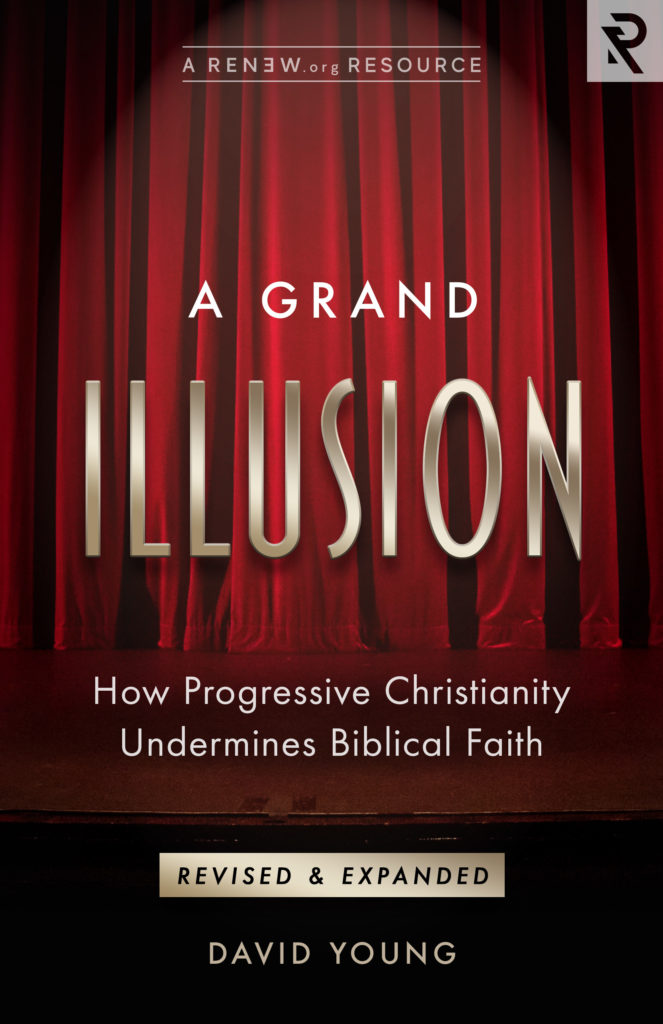
The Deconstruction Story That Makes the Most Sense
In his essay “What are we to make of Jesus?,” C.S. Lewis presents us with a worthwhile thought. He says,
“What are we to make of Jesus Christ? This is a question which has, in a sense, a frantically comic side. For the real question is not ‘What are we to make of Jesus Christ but what is He to make of us?’ The picture of a fly sitting deciding what he is going to make of an elephant has comic elements about it.”
Yet, here so many have sat and sit, as flies pondering the elephant.
To make a decision about believing in Jesus is one thing. But many have decided that they have the place to make something of Him and so they deconstruct Him. You’ve seen and considered their stories. Their pattern is obvious: believe in Christ, then challenge, analyze, and break Him apart, and then deny Him and His way, deciding that He’s not what they think He should be.
But they miss the whole point of the thing. It’s not theirs (or ours) to decide what to “make of Christ” but only His to decide what to make of us and say to us “Friend, I’ve broken down your life and found, at every turn, until your last breath, you are desperately wanting.”
I’m not trying to emphasize my experience, though. I’m seeking to emphasize what God’s Word teaches.
There we see that Jesus’ words and actions were deconstructing humans. There, we see that His life was lived analyzing the human experience and judging it according to God’s mind and then reworking it to bring humanity to a place that fits God’s original intention. (In fact, maybe that’s a good foundation for understanding discipleship.)
One place we see this is in Mark 1 when Jesus says, “I will make you to become . . . .” Before He calls His first disciples, He has analyzed them. As He calls them, He reveals His analysis: they are not what they were intended to be. He has broken down what they are and has rejected their previous attitudes, ideas, insights, and actions.
He deconstructs from the first meeting. But in doing so, He leaves them with the truth that He will take the shell of their life and make them into something that He wants them to be. A something, they will learn, that will be more than they could have ever hoped.
In Matthew 5 we find Jesus breaking down what the people around Him believed about the ways of God.
“You have heard that it was said, but I tell you . . . .” Whether it was something about murder or adultery or divorce or making vows or love and hate, Jesus takes apart what they had known, rejecting its supposed worthiness in God’s Kingdom. Jesus deconstructs the false notions they’ve garnered from God’s word and shows the way that could only be seen with Him on the scene. And the end goal of Jesus’ deconstruction here is to bring about a people who would “be perfect as the heavenly father is perfect” (Matt. 5:48), as God had always intended.
In Matthew 9, we find Jesus dismantling two persistent ideas of the human heart. First, the nature of forgiving sin and second, the lengths to which God will go to forgive sin. Instead of merely healing a lame man, He forgives the man’s sins–right where the man was (in this instance, at a boat dock), and not at the man’s own request (at least no pleading for forgiveness is mentioned).
This is not forgiveness as anyone had ever known it. Freely offered and from the very hand of God. He is guiding His disciples to understand that He has analyzed the ways and extents of humanities’ understanding of forgiveness and found it deficient.
Jesus deconstructs humanity regularly.
He breaks down the concept humans have of their need for food (Matt. 4); their understanding of demonic power (Mark 1:25-32); the difficulty of physical pain (Mark 1:30); how people’s expectations are met (Mark 1:38). At least 12 other places show clearly that it is Christ’s work to deconstruct humans in their sinfulness and rebellion and the entirety of His life reveals God’s planned way of making a “a people for His own possession” (1 Peter 2:9).
Do you see that Jesus is the only one who has the right of judgment to take what is and show that it isn’t and replace it with what really is? He alone has the authority to deconstruct all the notions that we have of who God is, what God looks like, acts like, values, how God will work, what God’s Kingdom is like and what humanities’ response should be to God. And our only option, if we are His disciples, is to believe His analysis, accept His redemption and follow Him faithfully.
While Jesus deconstructs our life, the Apostles define the fullness of the process.
Paul puts it this way when he writes to the Colossians after listing old-self ways of life:
“You have put off the old self with its practices and have put on a new self which is being renewed in knowledge after the image of its Creator.” (Col. 3:10)
And to the Corinthians Paul writes, “So we do not lose heart. Though our outer self is wasting away, our inner self is being renewed day by day” (2 Cor. 4:16). Peter says it this way, “But as He who called you is holy, you also be holy in all your conduct, since it is written, you shall be holy because I am holy” (1 Peter 1:16).
I’m astounded at how many are falling away from Christ because they’ve decided He’s one of whom they can make something.
But I’m not discouraged.
For any who are willing may still come to Him. But not as one seeking to make something of Christ or a fly seeking to devour an elephant. No. They can come as Peter did when he said, “Lord, to whom would we go? You have the words of eternal life. We have come to believe and to know that you are the Holy One of God” (John 6:68).
I’m astounded at how many are falling away from Christ because they’ve decided He’s one of whom they can make something.
Peter came broken down and laid bare by Christ and found himself fully renewed along Christ’s terms that he might write to his flock (and to us) many years later, “To those . . . who are chosen according to the foreknowledge of God the Father, by the sanctifying work of the Spirit, to obey Jesus Christ and be sprinkled with His blood . . . since you have been born again, not of perishable seed but of imperishable, through the living and abiding word of God . . . long for pure, spiritual milk, that by it you may grow up into salvation” (1 Peter 1:1-2, 23; 2:1).









